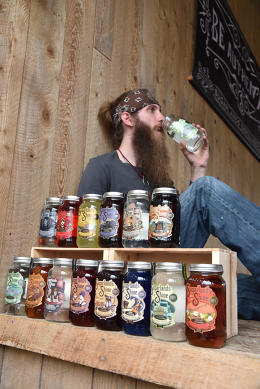Moonshine, Camel Milk, And Ex-Cons: How Outsider Businesses Are Going Mainstream
Moonshine. Camel milk. Cannabis. Once only products of the gray and black market economies, decriminalization is bringing a new wave of underground goods to consumers across the U.S. In Gatlinburg, Tennessee, I met with Matt O’Daniel, 26, known to his friends as ODamnit. O’Daniel had been brewing do-it-yourself black market moonshine in the Ozark Mountains before he found a job at Sugarlands as a distiller. Sugarlands was founded in 2014 in a 10,000-square-foot barn in the Smoky Mountains to cater to the growing demand for legal moonshine.
O’Daniel tells me how his shift into the legal moonshine trade from bootlegging was a step-up. “Making backwoods moonshine, you can only work with the grain you have available. And the quality is inconsistent. Plus, you constantly have to move to avoid detection.” O’Daniel used to sell jars of moonshine for $40 a piece, but he only sold them to people he knew, to keep his risk down. He would often trade moonshine for other products like tobacco, meat, and other liquors. Once, when his car broke down, he paid for a 20-mile tow using moonshine. “In the Ozarks, it was like a second currency,” O’Daniel says.
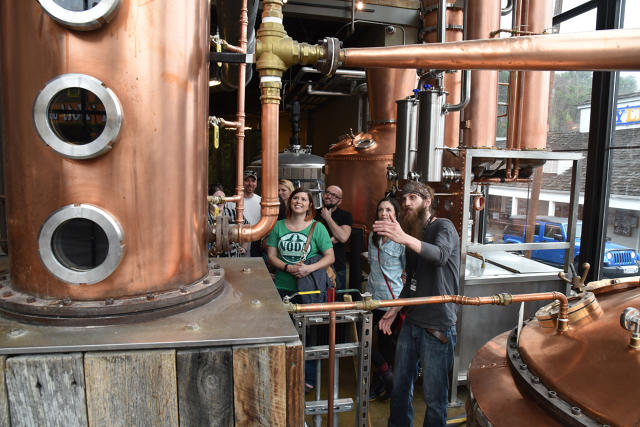
But O’Daniel says he prefers working on the legal side, because he gets to work with better ingredients and the distilling process is more robust, so the resulting moonshine is better quality. Backwoods moonshine is only distilled twice, while a commercial product is distilled about six times to remove all the imperfections.
But while the quality may be better, the commercial recipes are still very much inspired by the bootleg generation. Sugarlands prides itself on working with old-school Appalachian moonshine legends. Sugarlands’ owner and CEO Ned Vickers says he was seduced by moonshine because of its historic outlaw reputation: At his first meeting with old-timey moonshiners, they had him drinking home brew from a bear’s claw.
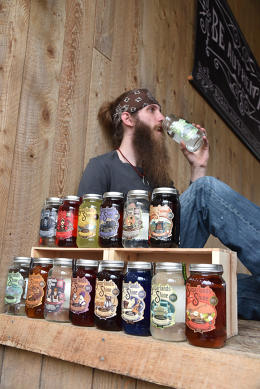
“Going back 100 years ago, roads in Appalachia were terrible. By the time you rented a wagon and took your corn to market you could barely break even. So people made moonshine instead,” Vickers says. Today, Vickers works with young and old moonshiners to learn their methods and recipes and create a modern-quality product for national export. Sugarlands is now distributing moonshine in over 21 states.
States legalizing informal businesses—cannabis being the most obvious example—are finding new revenue opportunities. And once struggling informal entrepreneurs are finding new pathways into mainstream business. Since Tennessee legalized moonshine, its wholesale alcohol beverage tax revenue has grown substantially.
Consider camel milk, which was also recently legalized in the U.S. The milk, which is rich in nutrients and vitamins, used to be mainly a hobbyist product produced by Amish farmers and sold illegally through buyer’s clubs around the U.S. But the milk is now finding a market in health-conscious consumers.
Desert Farms, a company, set up by Walid Abdul-Wahab, is available to Californians, where it is stocked by Whole Foods. But Abdul-Wahab has plans to scale nationally. The milk—as well as a camel milk product line including face creams and soaps—can be purchased from Desert Farms for home delivery.
Ex-con and former drug addict and smuggler David Victorson, who famously smuggled 37 tons of marijuana from Colombia to Seattle shows that entrepreneurial hustle can easily translate to mainstream business. After getting out of prison, Victorson helped create a rehab company—he was VP of marketing—and the company sold for $96 million in 2007.
These types of pivots from underground street hustler to venture capital-backed entrepreneur are still a rarity. The challenges and stigmas facing ex-cons are enormous. It’s hard to convert a criminal life into a strong CV. One savvy NGO started by former private equity investor Cat Hoke is trying to change just that. Her organization Defy Ventures works with ex-cons across the U.S. where they are put through a rigorous incubator program and matched with venture capitalists and mentors to develop entrepreneurial business models.
I’ve met with Defy graduates and taken part in mentoring and pitch sessions where participants are encouraged to see some of the strengths in their criminal pasts. Jose Vasquez, a Defy grad, illustrated this beautifully. Vasquez use to run a successful heroin business. He’s not proud of it, but he made good money and he told me how through his criminal training he learned some invaluable skills in the art of hustle: how to attract a customer base, manage product quality, recruit employees, and build a brand. He admits that perhaps he was less adept at risk management, otherwise he might not have ended up in prison.
With over 2 million adults in the U.S. incarcerated and many more working in the black market and informal economy, we may have to find more ways of turning to our ex-cons and informal entrepreneurs for new startup ideas. Known for being resourceful and frugal, they may have something to offer mainstream business.
Have something to say about this article? You can email us and let us know. If it’s interesting and thoughtful, we may publish your response.
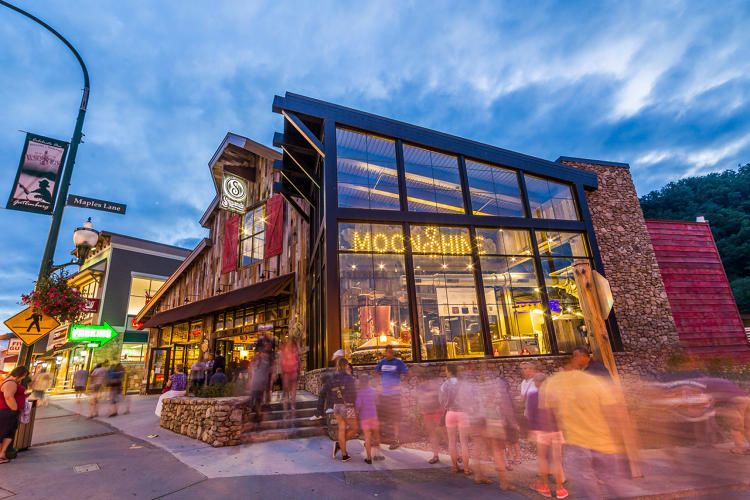
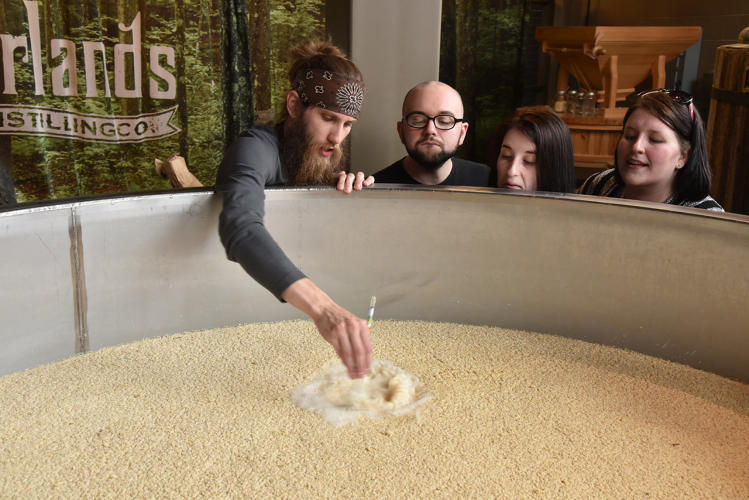
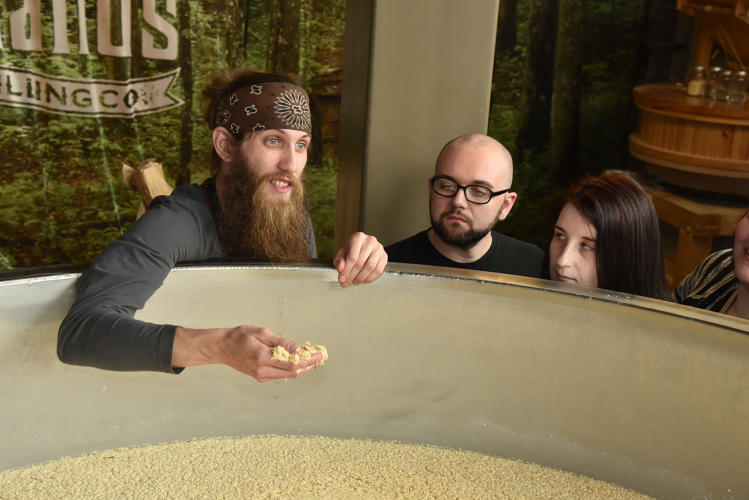
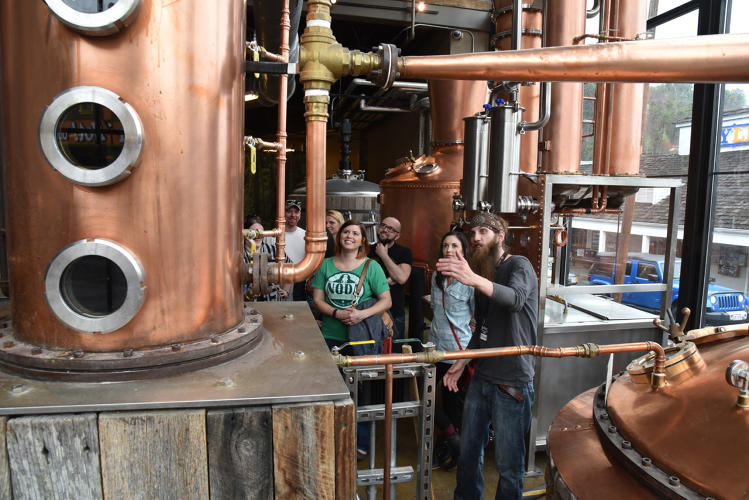
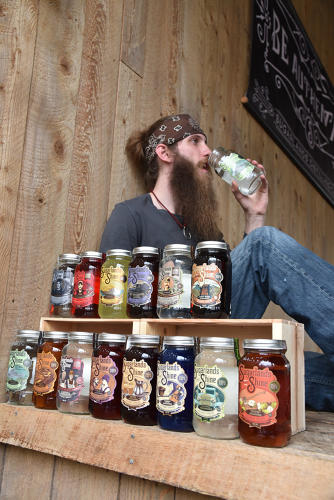
Fast Company , Read Full Story
(35)

